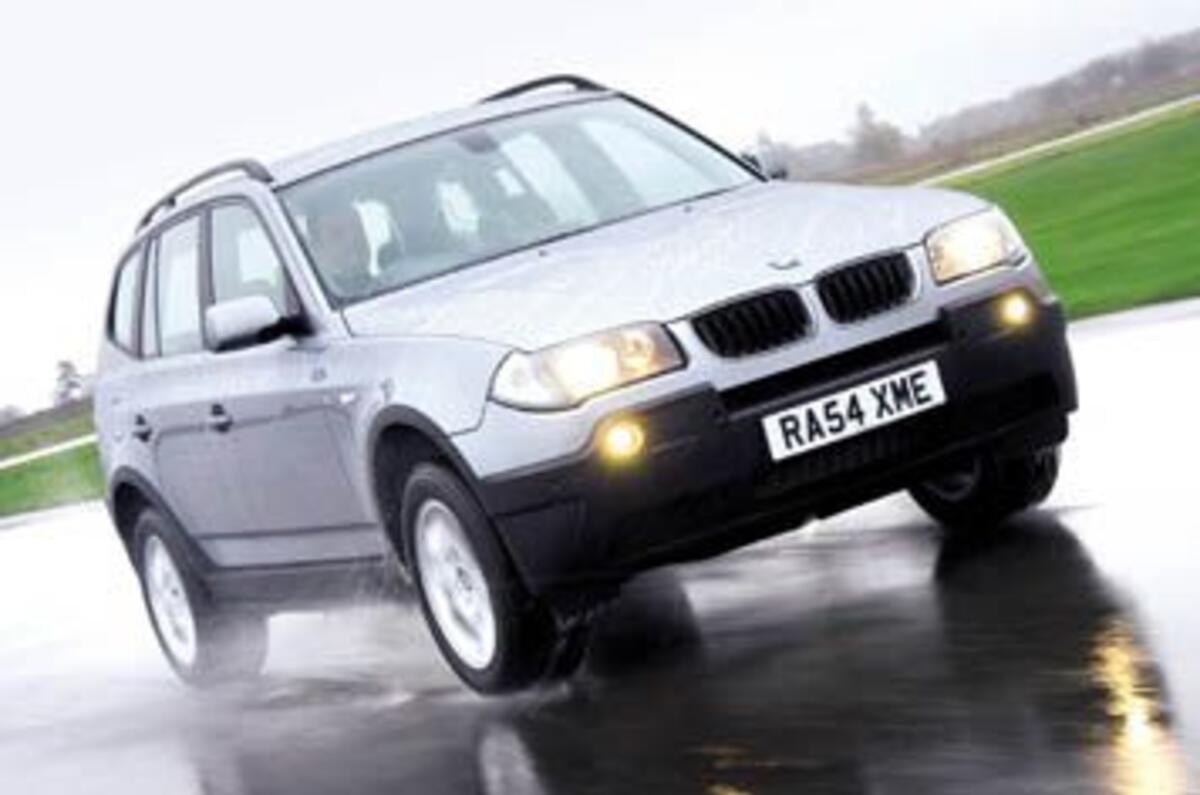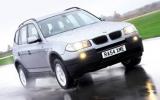Mr Young Professional faces a dilemma. When child number one was born, the next company car was obvious: replace the BMW 320 Ci with a 320d Touring. But with child number two on the way the little estate’s cramped back seat and 435-litre boot are no longer enough.
He reckons an off-roader will keep his family safe, but he’s a BMW man through and through and the BMW X5 3.0d is too expensive, while the thought of the petrol-only X3’s company car tax and potential fuel bill fills him with dread.
Thankfully, he’s just the sort of person BMW is looking for to help lower the age of its buyer profile and it has a solution to Mr Young Professional’s problem: take the torquey 1995cc diesel from his 320d and slot it into the BMW X3 to create an entry-level 4x4.
Since its introduction in May, the X3 has found 5000 homes in the UK, despite being offered with only 2.5- and 3.0-litre petrol engines. Next year that figure is likely to double, with up to 7000 of those sales accounted for by the new four-cylinder common-rail diesel version. Unsurprising, when you consider that it costs £2825 less than the 2.5 SE, previously the cheapest X3, and will average 39.2mpg compared to the 2.5’s 25.2mpg.
Despite being only Euro3 compliant, its 27 per cent company car tax rating is eight per cent lower than the X3 2.5, Lexus RX300, Nissan Murano and the Volkswagen Touareg 2.5 TDi.
And unlike the air-con-free 1-series, the X3 comes with a decent level of kit even in base form. For £26,175 you get six airbags, alloys, Dynamic Stability Control, ISOFIX child seat mounting points, automatic air conditioning, a CD player and a tyre pressure warning system.
Paying an extra £1150 for an SE like our test car – which BMW reckons 50 per cent of buyers will do – adds front fogs, a multi-function steering wheel, parking sensors and on-board computer. Another £1050 buys the top-of-the-range Sport. It wasn’t available on the launch, but as it adds sports suspension and 18in alloy wheels we suspect it won’t do anything to improve the X3’s much-criticised ride quality.
Like the petrol versions, the 2.0d sends the power to all four wheels through BMW’s xDrive transmission, which uses the DSC to brake spinning wheels and a multi-plate clutch to distribute power between the front and rear axles. In normal conditions, 68 per cent of the X3’s 150bhp and 243lb ft heads rearwards, but up to 100 per cent can be sent to either end depending on conditions.
For those few who will take their X3s off-road, there is also Hill Descent Control, 500mm wading capability and short overhangs to give steep approach and departure angles.
The 2.0d’s 150bhp doesn’t sound like much, and its 243lb ft is less than rival diesel SUVs in the class, but at 1820kg the X3 is lighter than some. It’s certainly not as punchy as a 320d, but 0-60mph in 10.2sec is perfectly acceptable and there is 62lb ft more torque than the 2.5 petrol. The diesel will accelerate from 50-75mph in fifth gear in 10.3sec, a full second faster than the petrol. And the engine is as good as you’d expect from a BMW.
At low revs it feels flat, but there’s reasonable pull available from 2000rpm round to 4500rpm and at motorway speeds it’s exceptionally refined.













Add your comment